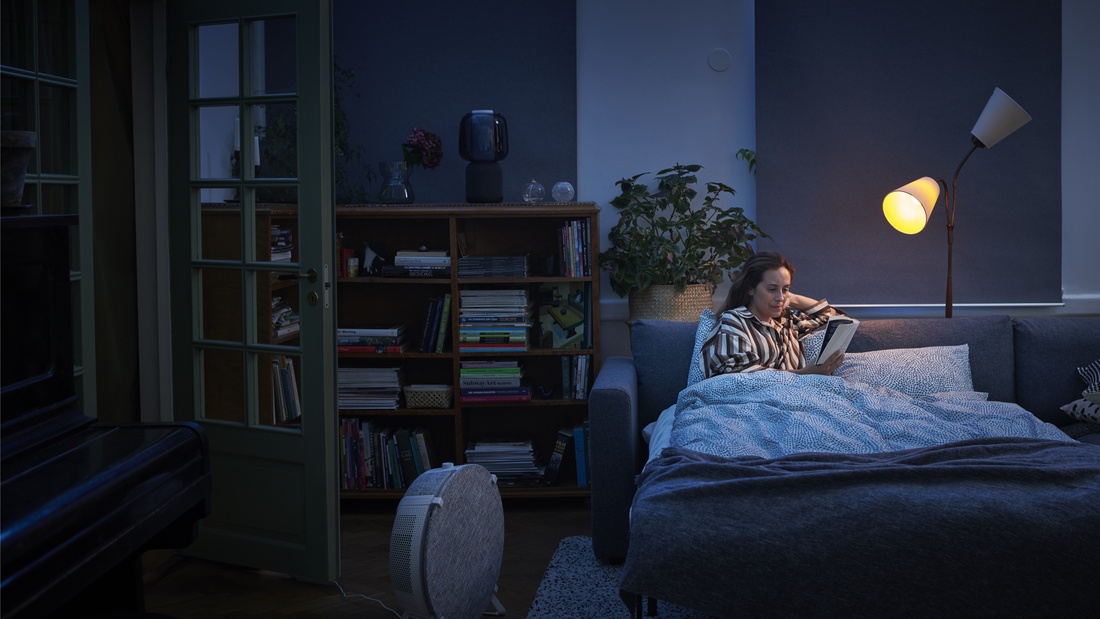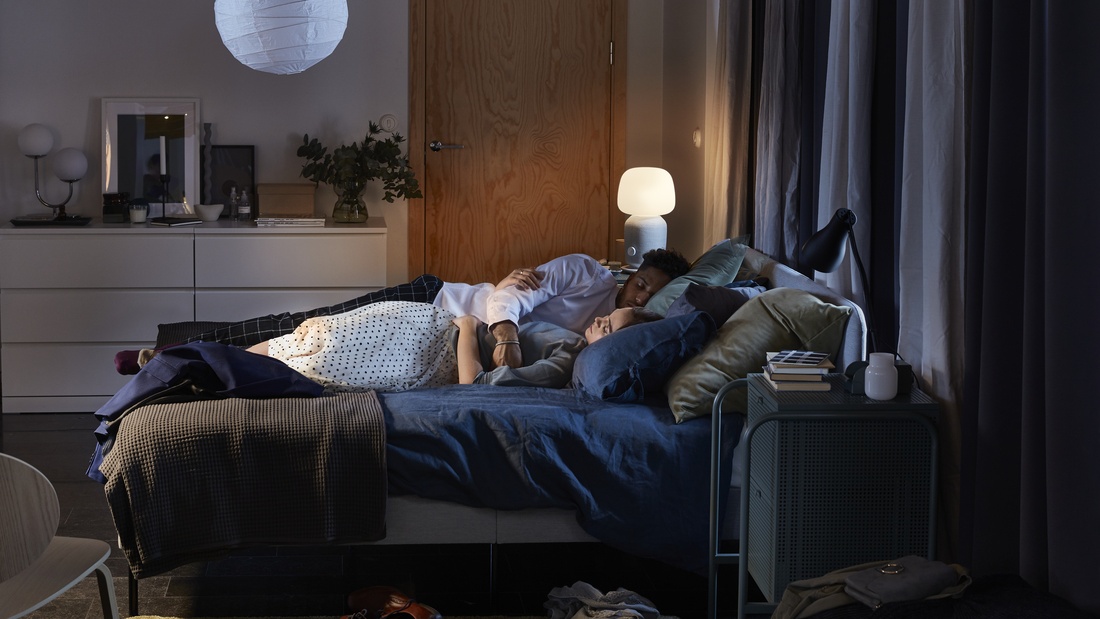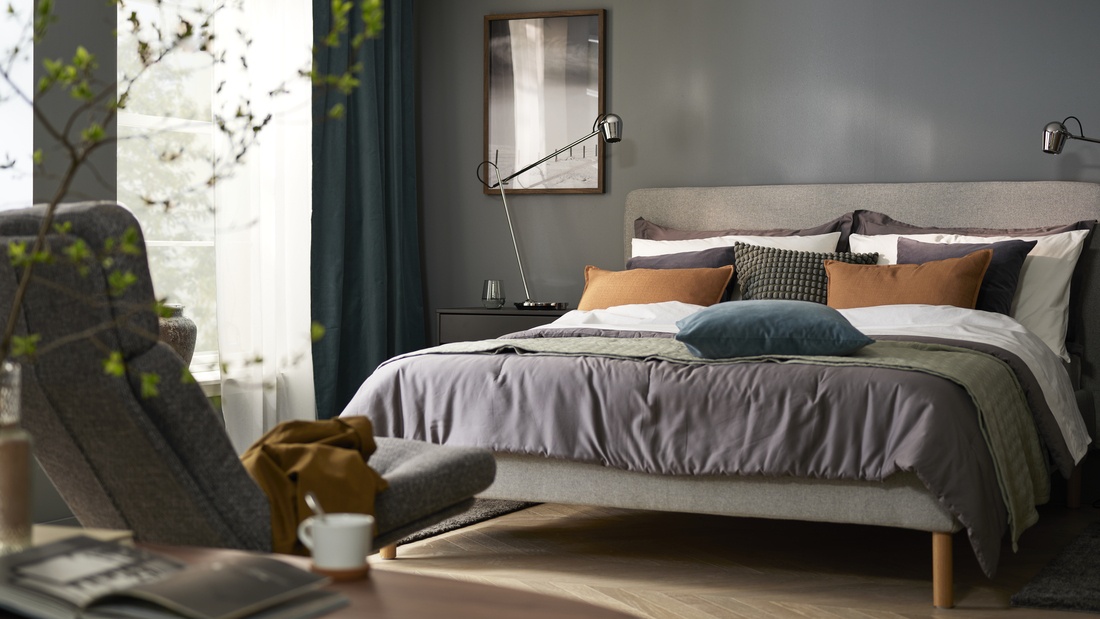Amidst the hustle and bustle of modern life, home should be an oasis of calm. However, noise from outside often disturbs our comfort and quality of sleep.
Constant noise from traffic, neighbors, or construction can cause stress, insomnia, and a variety of other health problems.
How to create a peaceful sleeping environment in an increasingly noisy city? Let's see the complete information in the following article.
Why Does Noise Affect Sleep Quality?
Have you ever woken up in the middle of the night because of the sound of vehicles passing on the highway? Or maybe the sound of music from your neighbors that disturbs your concentration? Noise, both from inside and outside the house, can greatly disrupt the quality of our sleep.
Studies have shown that consistent exposure to loud noises can lead to a variety of sleep problems, such as:
- Difficulty initiating sleep: Noise entering the home can make it difficult to relax and enter the sleep phase.
- Frequent waking up at night: Sudden noises, such as honking horns or loud music, can easily wake us from a deep sleep.
- Sleep becomes lighter: Even low or faint sounds can make our sleep lighter and less restful. This is because our brains are constantly trying to process the sounds, disrupting our natural sleep cycle.
- Reduced sleep duration: Due to frequent waking up and restless sleep, our overall sleep duration is reduced.
Why is a quiet sleeping environment so important?
When we sleep, our body undergoes repair and regeneration processes. To ensure that these processes run optimally, we need a quiet and dark sleeping environment.
When we are exposed to noise, the body releases stress hormones, such as cortisol. Increased levels of cortisol in the body can interfere with the production of melatonin, a hormone that regulates the sleep-wake cycle.
Soundproofing your home is an important investment in your health and quality of life. By dampening the sounds from outside, you not only create a more peaceful sleeping environment, but you also improve your productivity and mood during the day.
Also Read: Good and nice bed position for room layout
Practical Solution: Using Carpets for Sound Reduction
In addition to functioning as a floor covering and room beautifier, carpets also have an important role in dampening sound. The small-pored carpet material is able to absorb sound waves that hit its surface.
This significantly reduces the reflected sound, making the home atmosphere quieter and more comfortable. However, not just any carpet can reduce sound. IKEA offers a wide selection of carpets with various designs and materials.
You can choose a carpet with an additional layer that is specially designed to absorb sound. The acoustic panels integrated in some IKEA
carpet models can also improve sound absorption performance.
Thick Curtains to Reduce Noise from Windows
Windows are often the main entry point for noise from outside the house. Fortunately, there is a simple yet effective solution to overcome this problem, namely by using thick curtains. Thick curtains not only serve to beautify the room, but also act as an effective sound barrier.
How Do Thick Curtains Dampen Sound?
- Dense layers: Thick curtains have dense and tight layers, making it difficult for sound waves to penetrate them. This layer acts as a cushion that absorbs sound energy, so that the sound entering the room becomes muffled.
- Sound-absorbing materials: Many heavy curtains are made of materials specifically designed to absorb sound, such as velvet or foam-lined fabric. These materials can dampen sound more effectively than sheer or lightweight curtains.
- Air barrier: Thick curtains also act as an air barrier. By covering the windows with thick curtains, we reduce the small gaps that can be a way for sound to enter.
Also Read: IKEA Surabaya: The right solution for your mattress choice
Additional Solutions: Installing Glazed Windows and Wall Insulation
To create a truly quiet home free from noise disturbances from outside the house, you can consider the following additional solutions:
- Installing Glazed Windows: Glazed or double glazing windows are a great investment to reduce noise. The air space between the two layers of glass acts as an effective sound barrier. In addition, glazed windows also have the advantage of insulating the temperature, so your room will be cooler in the summer and warmer in the winter.
- Adding Soundproofing to Walls: Walls are one of the main pathways for sound to enter from outside. To reduce noise, you can add soundproofing layers to the walls, such as:
- Acoustic panels: Acoustic panels are made of materials that are specially designed to absorb sound waves. You can choose acoustic panels in various designs and colors to beautify your room.
- Acoustic foam: Acoustic foam has pores that absorb sound and reduce echo.
- Mineral wool: Mineral wool is an effective insulating material for reducing sound and heat.
Also Read: The influence of light color for a more comfortable and restful sleep
Combination of Decoration and Function for Optimal Results


